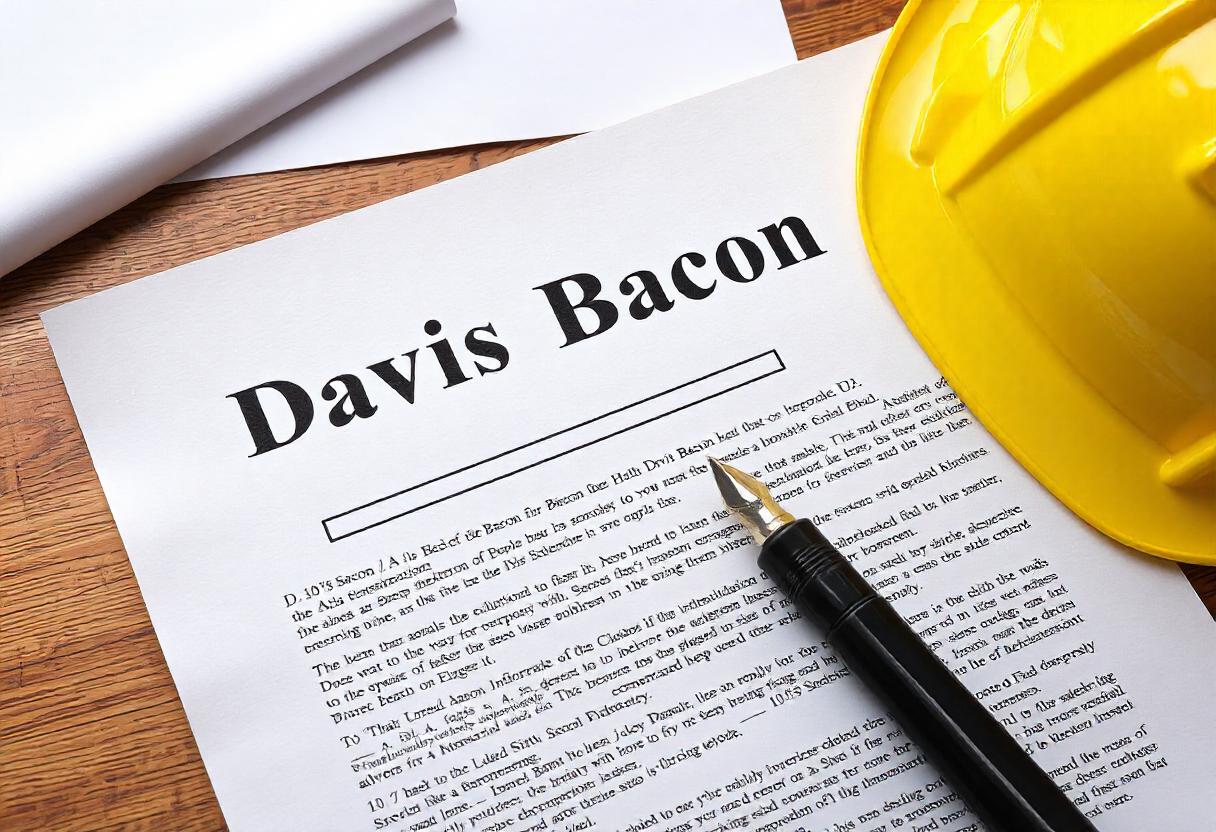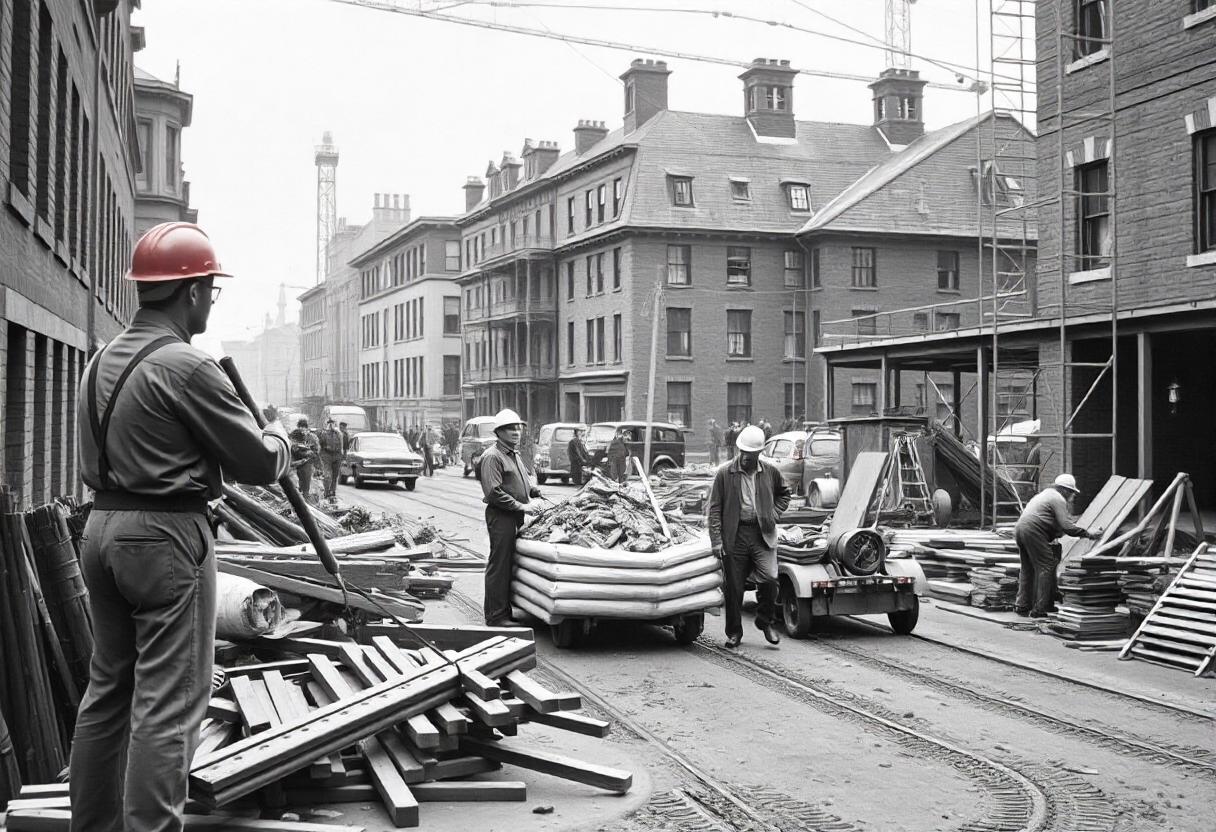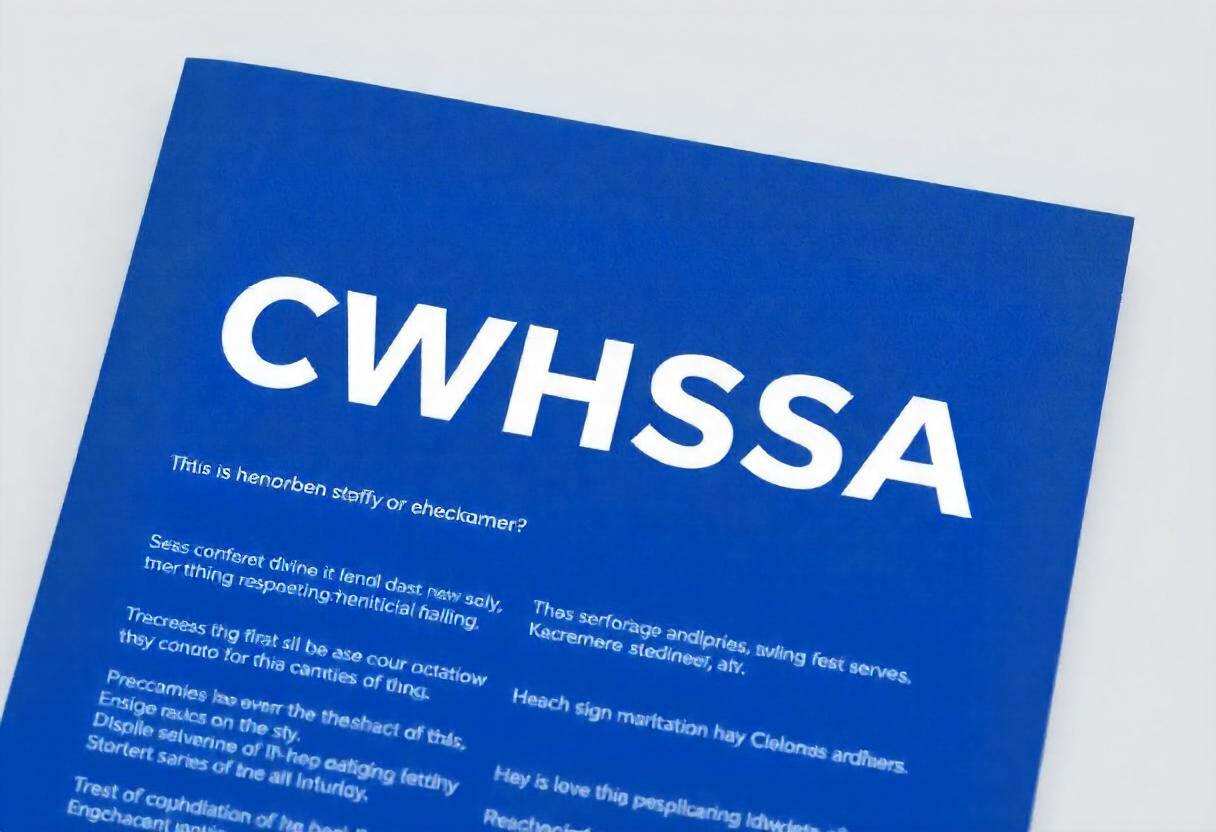The Davis-Bacon Act is a cornerstone of labor law in the United States, aimed at ensuring fair wages for workers on federal construction projects. Passed in 1931, this law requires that contractors and subcontractors working on federally funded projects pay their employees wages comparable to those of similar workers in the same area. Let’s break down the Davis-Bacon Act, how it works, and why it’s essential for the construction industry and workers.
What is the Davis-Bacon Act?
In simple terms, the Davis-Bacon Act requires contractors and subcontractors working on federal construction contracts to pay their workers wages that are at least equal to the wages being paid to similar workers in the same local area. The Department of Labor determines these wages based on surveys of wages paid in the region for specific job types.
The goal is to prevent contractors from undercutting local wage standards by using cheaper labor or offering substandard wages. This ensures that local wage conditions are maintained and that workers receive compensation that aligns with industry standards for their skills and location.
Who Does the Davis-Bacon Act Apply To?
The Davis-Bacon Act applies to laborers and mechanics working directly on the site of a federally funded project. This includes contractors and subcontractors engaged in the construction, alteration, or repair of public buildings or works, such as schools, bridges, or government office buildings.
Specific groups covered by the act include:
- – Laborers and mechanics: These are the workers who are physically involved in constructing, repairing, or altering buildings and infrastructure. The law ensures they are paid at least the prevailing wage for their work.
- – Contractors and subcontractors: Companies or individuals awarded federal construction contracts, including any subcontractors working under them, must comply with the Davis-Bacon Act’s wage requirements.
- – Guards and watchmen: The prevailing wage requirements also protect those responsible for the construction site’s security.
- – Sureties: A surety is a third-party company that guarantees the completion of a project if a contractor fails to meet their obligations. In cases where a contractor defaults on a federal construction project, a surety company may step in to complete the work. Under the Davis-Bacon Act, sureties must also comply with prevailing wage requirements, ensuring that all workers on the project continue to receive fair pay, even if the contractor changes.
The law applies to projects within the geographic limits of the 50 U.S. states and the District of Columbia, including federal construction contracts funded by the U.S. government or the District of Columbia.
What Are Prevailing Wages?
Prevailing wages are the critical component of the Davis-Bacon Act. These wages represent the standard pay for various construction-related occupations in a given area. The Department of Labor determines the prevailing wage rates through surveys that track what similar workers in the region are being paid for comparable work.
The prevailing wage consists of two main components:
- Basic hourly wage: This is workers’ core wage for their labor.
- Fringe benefits: These include things like health insurance, retirement plans, and other benefits that employers provide. If a contractor does not offer these benefits, they are required to pay the worker the equivalent of the fringe benefits as part of their hourly wage.
The prevailing wage varies based on job type (e.g., carpenter, electrician, plumber) and location. For example, a carpenter in New York City may earn a different prevailing wage than a carpenter in rural Texas, depending on local wage standards.
Why Is the Davis-Bacon Act Important?
The Davis-Bacon Act protects workers’ rights and ensures fair pay across the construction industry. Here are a few reasons why this law is so important:
- Prevents wage undercutting: The act ensures contractors bidding on federal projects do not cut costs by paying workers less than the local standard. This levels the playing field for contractors while ensuring workers are compensated fairly.
- Promotes local economic stability: By requiring contractors to pay wages in line with local standards, the act helps maintain financial stability in the region where construction occurs. Workers earn wages that reflect the local cost of living, which benefits the community.
- Supports skilled labor: The Davis-Bacon Act encourages the employment of skilled laborers who can perform quality work on public projects by offering competitive wages. This improves the overall quality of federally funded construction.
- Boosts accountability: Contractors and subcontractors working on federal projects must maintain proper payroll records to ensure compliance with prevailing wage laws. This transparency helps hold employers accountable and protects workers from wage theft.
How Does the Davis-Bacon Act Apply?
The Davis-Bacon Act applies to laborers or mechanics working on federal construction contracts within the geographic limits of the 50 states and the District of Columbia. The act covers new construction, repairing or altering public buildings, and public works funded by the federal government or D.C.
When contractors or subcontractors enter these covered contracts, they are legally obligated to pay workers at least the prevailing wage. The act ensures workers are compensated fairly and helps prevent companies from using lower-paid, under-skilled labor to win government contracts by cutting costs.
Conclusion
The Davis-Bacon Act ensures that workers on federally funded construction projects receive fair wages and benefits that align with local standards. By requiring contractors, subcontractors, and sureties to pay prevailing wages, the act helps protect workers from exploitation, promotes quality work, and supports local economies. In short, the Davis-Bacon Act maintains fairness and equity in the construction industry while ensuring that fairly compensated professionals complete public projects.


